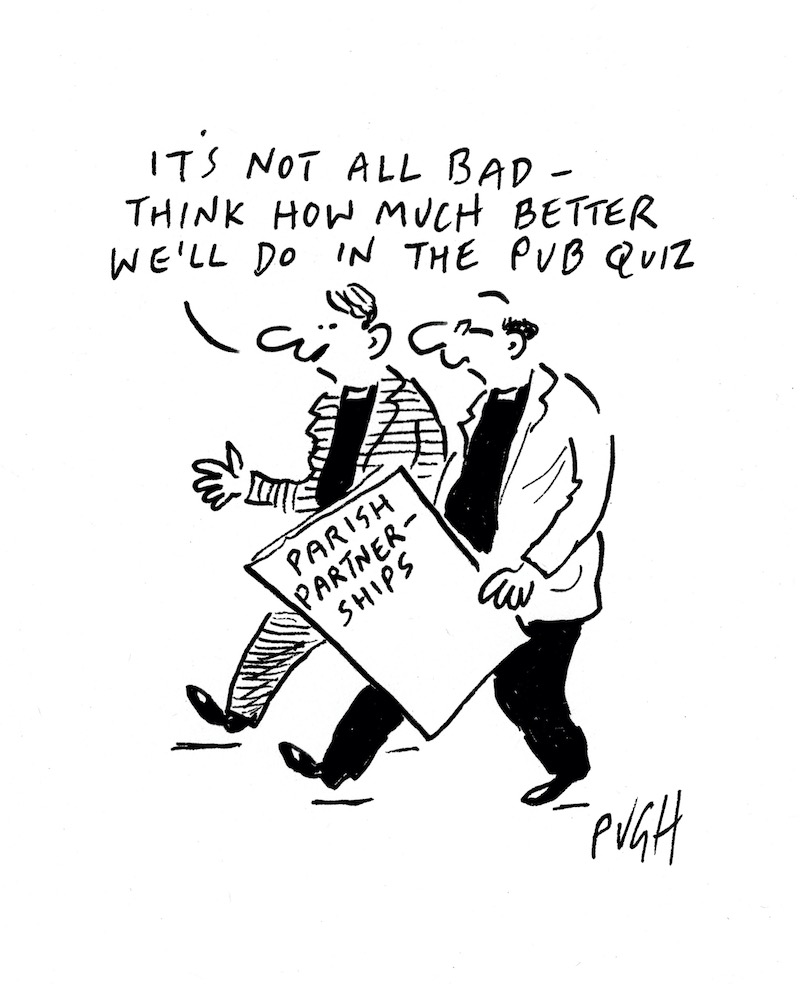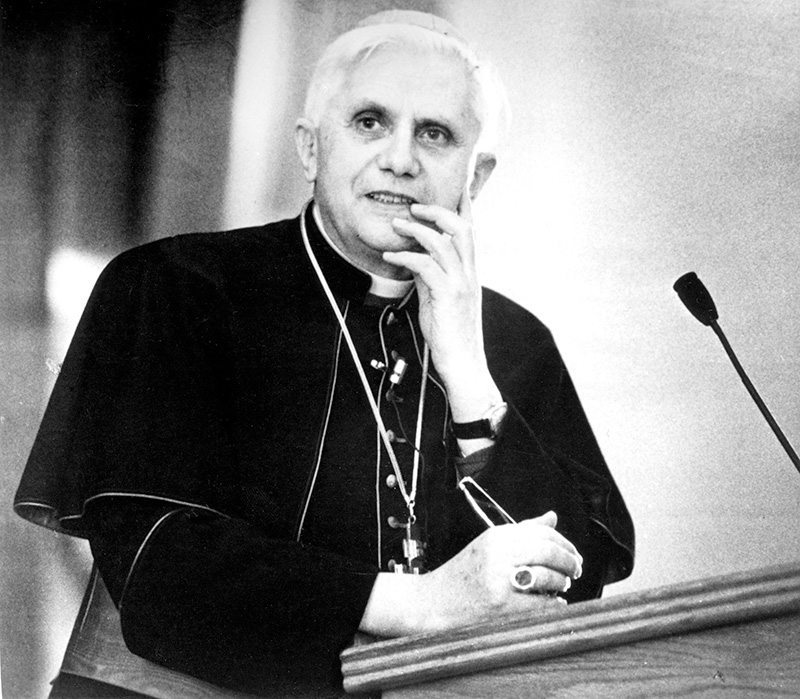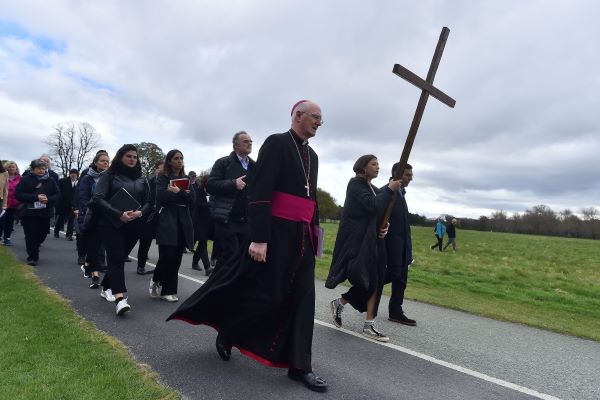Archbishop Dermot Farrell of Dublin has said the introduction of parish partnerships as part of structural changes in the Irish Church’s largest diocese is “much more than ‘managing decline’”.
The archbishop announced the radical proposal for parish partnerships in early December, after a period of consultation with the Archdiocese of Dublin’s 197 parishes which began last Easter.
He told The Tablet that the move was creating “a framework in which we can share an exciting vision of how priests and people together in the archdiocese can respond to and draw strength for the call we each received in Baptism”.
“This will enable lay leadership to emerge in pastoral ministry including, for example, as funeral ministers. Training has already been initiated in the archdiocese in this regard,” he said.
The move is part of the Building Hope strategic planning initiative which aims to enable parishes, “re-engage in the mission of the Church for our time”, he said.
The strategic plan envisages a “creative engagement” between the archdiocese and parish communities to determine pastoral and property requirements.
He acknowledged that Church attendance is not yet back to pre-Covid levels in the Archdiocese of Dublin, and he invited people to return to the regular Sunday practice of their faith.

“It is good to come together to celebrate the Eucharist as a faith community gathered around Christ. We are nourished and renewed at the table of the Lord,” the 68-year-old former president of Maynooth College said.
Asked about vocations to the priesthood and whether he believed St Patrick’s College, Maynooth has a future as a seminary, Archbishop Farrell responded: “Firstly, vocations are God’s call. Vocation by its very nature is the initiative of God.
“The evident change in the numbers of those presenting themselves as candidates for priesthood and the religious life, both women and men, must mean that God is saying something to the Church.”
He said vocations flow from the life of the Church.
“It is the role of the seminary to form those discerning a vocation. It is not the role of the seminary to foster vocations in the Church. That is the role of the Holy Spirit.”
He stressed, “The Lord has not abandoned His Church.”
“New realities unfold. For example, the emergence of the Permanent Diaconate has been a blessing that we could not have imagined twenty years ago. Christ brought his disciples to look at the world in a new way.”
According to Archbishop Farrell the National Seminary in Maynooth is actively responding to the ministerial needs of the Church in Ireland in tandem with the Pontifical University and the Trustees of the college.
“New and innovative programmes are being introduced as the college continues to serve the ongoing work of ‘faith seeking understanding’ and of providing education and formation for the varied forms of pastoral ministry which are necessary in an Ireland in common with much of the Europe that has returned to being a missionary territory.”
He highlighted how diploma programmes such as those for the permanent diaconate, youth ministry, catechists and parish administrators are being or shortly will be offered in the newly established Centre for Mission and Ministries in Maynooth, alongside the traditional undergraduate and postgraduate degree programmes in theology, philosophy and pastoral and liturgical theology.
St Patrick’s College he said, “will continue to be a locus for high quality Catholic education and formation for those who are preparing for pastoral ministry – both priestly and lay – in a context where priests together with lay ministers and volunteers are learning how to use their gifts, talents and training to answer the call to a new evangelisation as the pilgrim People of God.”
Describing the Synodal Pathway as a gift to the Church at this time, the archbishop said: “One of the gifts we received from the Second Vatican Council was a recovery of the practice of synodality which, by and large, characterised the Church of the first millennium.”
“In the last ten years Pope Francis has deepened the understanding of what it means to be a synodal church and widened participation in the synodal pathway to all the baptised and to people of good will.”
Pope Francis, he told The Tablet, is keen to show that the Synod of Bishops is moving beyond the way it used conduct its affairs.
“He is instead preparing for a Church that is always ‘synodal’, meaning it is constantly listening and learning, first to the Spirit and then from each other. The experience of the first stage, the local or diocesan stage bears this out.”
Catholicism in the twenty-first century, he believes, is a truly global institution.
“A global Church cannot have a one-size-fits-all approach,” he said, adding that “synodality requires that our disposition from the outset is marked by an openness”.
Archbishop Farrell was asked about the cohort of some 500 young conservatives in Ireland who in a letter to the Irish bishops indicated that they felt they had not consulted adequately.
“The invitation to participate in the synodal pathway was extended to all the baptised. Initially, the net was cast wide to all parishes, and then to eighteen focus groups, that included prisons, healthcare, missionaries, LGBTQI+, universities, schools, survivors of abuse, ecumenical groups.
“Other groups took it upon themselves to gather and respond to the invitation. No one or group was excluded and all submissions were received and considered in a synodal way,” the Archbishop responded.
Archbishop Farrell took issue with the word “consultation”, which he said does not capture the deeper meaning and intent of synodality.
“You can consult with your doctor, your public representative, you exchange views, you glean some information.
“Synod, as we know, is about being with God and each other in prayer as we discern together what God is asking of us. It is much deeper reality and is long way from a consultation.”
He continued: “At the heart of synodality is the word discernment. Discernment is not just an intellectual exercise, but a profoundly spiritual one, it requires prolonged prayer in dialogue with God, openness, a sincere examination of conscience and a detachment from self.
“True discernment will mean that the whole process will not be a mere talking shop, but a radical response of the Church to the promptings of the Spirit.”
He also underlined that synodality “requires that our disposition from the outset is marked by an openness”.
“There can be a temptation by some, who, from the outset, are uncomfortable with synodality, that they enter into echo chambers where people with like-minded views gather amongst themselves to have conversations that are predictable and well-rehearsed.”
“Being truly open and orientated in a synodal way and when we let go, let go of our personal agendas, then we can be open to be surprised by God.”
He said constant vigilance was required because the human heart is prone to stray, led in other directions.
“During the Amazonian Synod, Pope Francis felt that some of the discussions around married priests and female deacons had taken on a ‘rich and necessary parliament’.
“When this happens there is a danger that true discernment is replaced with a politicising agenda leading to certain rigidity that often is hiding something.”
“The synodal process,” the archbishop said, “should be a time of extensive prayer, listening and discernment, not a time for pushing agendas. It is about consensus-building and finding God's will, not mobilising supporters to get a majority vote for your agenda.”
He noted that Pope Francis writes about this kind of temptation in his book Let Us Dream: The Path to a Better Future.



 Loading ...
Loading ...